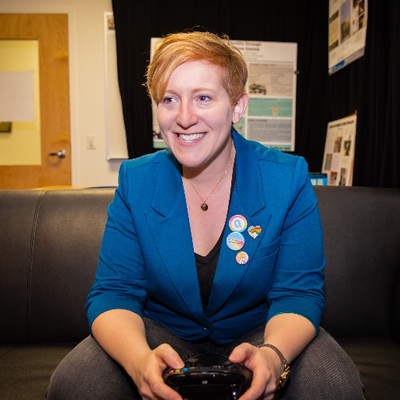 I’m excited to be headed back to the American Comparative Literature Association conference this spring, which is being held in Toronto. Last year, when the conference was in Providence, I gave a talk tastefully titled “Fucking Fiction, Fucking Fact,” on Alan Moore and Melinda Gebbie’s pornographic graphic novel Lost Girls. This year I will yet again be that panelist (the one dead set on close reading texts that make us feel funny in our pants). The 2013 conference theme is “global positioning systems,” i.e. metaphors of technology and place. In line with the work I’m presenting next week at the New Media DE panel, I’ll be talking about setting in text-based cybersex. Here’s the paper title and abstract:
I’m excited to be headed back to the American Comparative Literature Association conference this spring, which is being held in Toronto. Last year, when the conference was in Providence, I gave a talk tastefully titled “Fucking Fiction, Fucking Fact,” on Alan Moore and Melinda Gebbie’s pornographic graphic novel Lost Girls. This year I will yet again be that panelist (the one dead set on close reading texts that make us feel funny in our pants). The 2013 conference theme is “global positioning systems,” i.e. metaphors of technology and place. In line with the work I’m presenting next week at the New Media DE panel, I’ll be talking about setting in text-based cybersex. Here’s the paper title and abstract:
“Online Sex Nowhere and Everywhere: Writing Place in Text-Based Cybersex”
Erotica’s long history is not only filled with fantasy acts, but also fantasy places. The chateau at Roissy, the Sadeian boudoir, the porn-set apartment where the leaky faucet calls for a strapping repairman. When we read longing, we also read location. “Sexuality is never expressed in a vacuum,” Angela Carter reminds us, and we could say the same of sex itself: it must always happen somewhere. Except, it would seem, on the internet. Cyberspace, hub of erotics in the digital age, strikes us as existing nowhere and everywhere; at any given moment thousands of internet users from across the globe are entwining their virtual bodies in the wireless ether.
Online sex takes many forms, some surprisingly literary. In addition to consuming and producing internet pornography, individuals regularly engage in one-on-one intercourse: stripping down in front of web cams, for example, or locking genitals through avatars in virtual worlds. Most longstanding of these practices is text-based cybersex — sex performed through instant messages or chat rooms. In these exchanges, lovers act out erotic encounters entirely through language, creating impromptu pieces of erotica as they describe kisses, moans, and (most importantly) steamy locations as backdrops to their passion.
This talk combines contemporary new media scholarship with literary close reading to examine how cybersex uses text itself to create erotic spaces, reintroducing the geography of fantasy into the unlocatable “where” of the internet.
I’m honored that the talk has been picked up by what sounds like a totally awesome panel called Intimate Mediations, organized by Christopher Grobe of Amherst College and Shonni Enelow of Fordham University. They write: “This seminar explores the rhetorics and techniques of intimacy created around emerging media or genres, from the novel to the blogosphere and beyond. We are interested not only in ways that intimate relationships are represented in media, but also in how media are used intimately.” Mmm, media intimacy. Now to snuggle up on the sofa with Scott’s adorable, squishy, anthropomorphized iPad named “Gary.”

